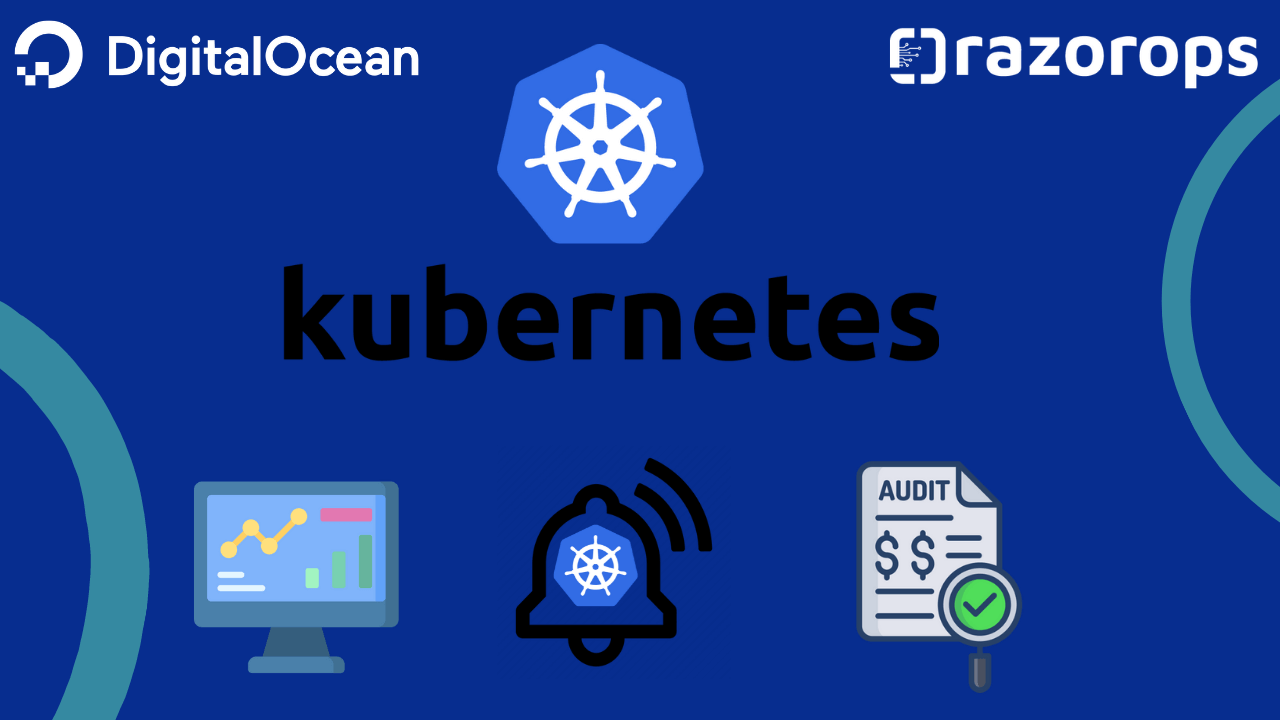
Kubernetes Alerts Gone Wrong: How To Fix Inadequate Monitoring And Alerting? Subscribe to get the latest updates on container-native & DevOps news here.
Kubernetes is an open-source platform for automating the deployment, scaling, and management of containerized applications. It is widely used by organizations for managing their containerized applications and microservices. However, managing and monitoring a Kubernetes cluster can be a complex and challenging task. Improper monitoring, alerting, and auditing can lead to a number of issues that can negatively impact the performance and reliability of a Kubernetes cluster.
One of the most common challenges with improper Kubernetes monitoring is the inability to detect and respond to performance issues in a timely manner. For example, if a container in a cluster becomes unresponsive, the impact can be significant, causing an application to become unavailable and leading to customer complaints. If a proper monitoring system is not in place, this issue may go unnoticed for a long time, leading to further degradation of the system.
Another challenge is the lack of visibility into the resource utilization of a Kubernetes cluster. This can result in the overprovisioning of resources, leading to increased costs for the organization. On the other hand, if resources are not provisioned adequately, the performance of the cluster can be impacted, leading to application downtime. In either case, it is important to have proper monitoring in place to track resource utilization and make adjustments as needed.
Inadequate alerting systems can also pose a challenge in a Kubernetes environment. If alerts are not configured properly, they may not be triggered when an issue arises, leading to a delay in response time. Furthermore, if alerts are not actionable, they may not provide the necessary information to quickly resolve the issue. As a result, organizations may need to spend a significant amount of time diagnosing and resolving the problem, leading to increased downtime and decreased productivity.
Another challenge with improper Kubernetes monitoring is the lack of auditing capabilities. This can result in a lack of visibility into who made changes to the cluster, what changes were made, and when they were made. This can lead to security and compliance issues, as well as a lack of accountability for changes made to the cluster.
To address these challenges, organizations need to implement proper monitoring, alerting, and auditing systems for their Kubernetes clusters. This can be achieved through the use of various tools and services, such as:
-
Monitoring tools, such as Prometheus and Grafana, can be used to track resource utilization and monitor the health of the cluster. These tools provide real-time visibility into the performance of the cluster and allow organizations to quickly detect and respond to issues.
-
Alerting systems, such as Alertmanager, can be used to trigger alerts when specific conditions are met. These alerts can be configured to be actionable, providing the necessary information to quickly resolve issues.
-
Auditing systems, such as the Kubernetes Audit Log, can be used to track changes made to the cluster and provide a record of who made changes, what changes were made, and when they were made. This can help organizations maintain security and compliance and hold individuals accountable for changes made to the cluster.
Improper monitoring, alerting, and auditing can pose significant challenges for organizations using Kubernetes. However, by implementing proper monitoring, alerting, and auditing systems, organizations can ensure the performance, reliability, and security of their Kubernetes clusters. This can lead to increased efficiency, reduced downtime, and improved customer satisfaction.

Join the February 11 webinar, “Kubernetes Monitoring, Alerting, and Auditing Using DigitalOcean Marketplace Tools,” and learn the secrets to successful Kubernetes Monitoring, Alerting, and Auditing using DigitalOcean marketplace tools. Register now!
Tutorials & Guides
- GitOps for Kubernetes with ArgoCD, Crossplane, Kyverno and Paralus
- Key considerations when implementing virtual Kubernetes clusters
- How to use GitOps to automate Terraform
Top Reading Recommendations
- How to Simplify Kubernetes Updates and Reduce Risk
- Where Does Observability Stand Today, and Where is it Going Next?
Upcoming Online Events
- How to whiteboard your software catalog taxonomy | Feb 9 - 10, 12:00 AM (PST)
- Kubernetes Benchmark Report 2023 - What’s Working and What’s Not | Feb 9 - 10, 12:00 AM (PST)
- 5 Key Steps to Securing a Default Kubernetes Cluster | Feb 9 - 10, 12:00 AM (PST)
DevOps Jobs
- Google - Check out all the jobs here
- Microsoft - Check out all the jobs here
- Accenture - Check out all the jobs here
